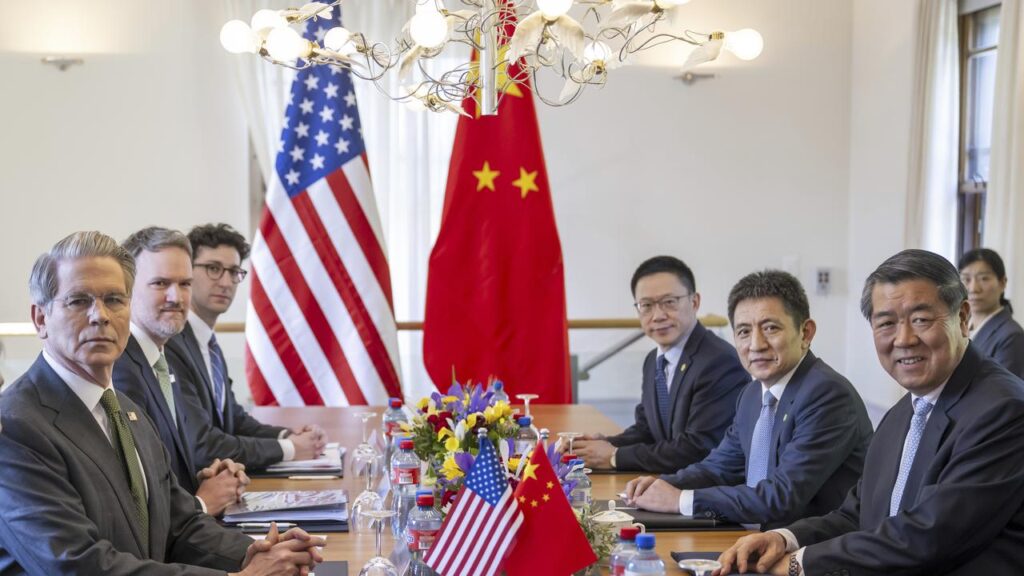Sweden to host US, China talks on tariff deadline
|

US Treasury Secretary Scott Bessent says he will meet his Chinese counterpart next week in Stockholm and discuss what is likely to be an extension of an August 12 deadline for a deal to avert sharply higher tariffs.
Bessent told Fox Business Network that trade with China was in “a very good place” and the meetings in Sweden would take place next Monday and Tuesday.
“I think we’ve actually moved to a new level with China, where it’s very constructive and … we’re going to be able to get a lot of things done now that trade has kind of settled in at a good level,” Bessent said.
Swedish Prime Minister Ulf Kristersson confirmed in a post on X that Sweden will host the US-China trade talks early next week.
“It is positive that both countries wish to meet in Sweden to seek mutual understanding,” Kristersson said.
Since mid-May, Bessent has met twice with Chinese Vice Premier He Lifeng in Geneva and London to work out and refine a temporary trade truce that dialled back duelling triple-digit retaliatory tariffs that threatened to cut off all trade between the world’s two largest economies.
US Trade Representative Jamieson Greer, Commerce Secretary Howard Lutnick, China’s Commerce Minister Wang Wentao and chief trade negotiator Li Chenggang also participated in those talks.
In talks so far, China has agreed to end its export ban on rare earth metals and magnets to the US while the US agreed to restart shipments of semiconductor design software and production materials as well as commercial aircraft engines and other goods to China.
But the two sides set a 90-day deadline to resolve deeper issues, including US complaints about China’s state-led and subsidised export-driven economic model that has created excess manufacturing capacity in China that is flooding world markets with cheap goods.
China denies that it subsidises its industries and attributes their export success to innovation.
Tariffs could snap back to 145 per cent on the US side and 125 per cent on the Chinese side without a deal or negotiating extension.
“We’ll be working out what is likely an extension” at the Stockholm talks, Bessent said, adding that US officials would discuss other issues including reducing China’s over-reliance on manufacturing and exports.
“Hopefully we can see the Chinese pull back on some of this glut of manufacturing that they’re doing and concentrate on building a consumer economy,” Bessent said.
He said he also wants to issue warnings to China about continuing to buy sanctioned Russian and Iranian oil and China’s efforts to aid Russia’s war against Ukraine.
Bessent said that there was bipartisan support in the US Senate for legislation aimed at imposing tariffs of 100 per cent on goods from countries that continue to buy Russian oil, namely China and India.
“I’m going to be in touch with my European counterparts. The Europeans that have talked a big game about sanctioning Russia, and it’ll be very important for the Europeans to also be willing to put on these high level of secondary tariffs for sanctioned Russian oil.”
He said that the US was poised to announce “a rash of trade deals” with other countries, and Japan could be among these despite an election setback for Japan’s ruling party and difficult negotiations.
“I wouldn’t be surprised if we aren’t able to iron out something with Japan pretty quickly,” Bessent said.
Nonetheless, he said that for most countries, tariffs would “boomerang” back towards April 2 levels from the current 10 per cent but negotiations on trade deals could continue.
Reuters